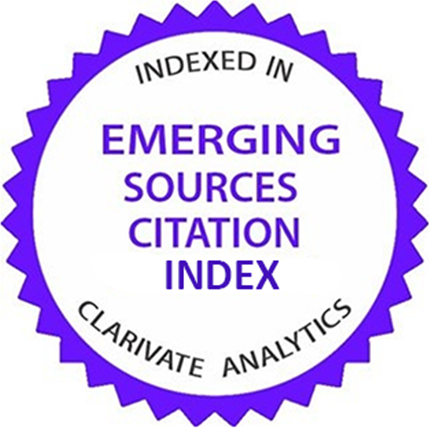The Accuracy of GAP and MGAP Scoring Systems in Predicting Mortality in Trauma; a Diagnostic Accuracy Study
Abstract
Introduction: Trauma scoring systems help physicians and nurses to be informed of injuries to a patient and assist their decision making in the cases of trauma and importantly prediction of their outcome and prognosis.
Objective: This study aimed to compare the accuracy of GAP and MGAP scoring systems as predictors of mortality in trauma patients.
Methods: This diagnostic accuracy study was conducted amongst 1861 trauma patients admitted to Rajaee Hospital in Shiraz, Iran, during 2017. The data on demographic features were extracted from the patients’ records. Then, trauma scoring systems including injury severity score (ISS), GAP, MGAP, and Glasgow coma scale (GCS) were compared to evaluate their accuracy in predicting mortality. Area under the receiver operating characteristic (ROC) curve was used to evaluate the accuracy of different trauma scoring systems and detect the sensitivity and specificity in order to predict status of discharge after 24 hours.
Results: Based on the results, the area under the ROC curve was 0.8 for GCS. Moreover, Area Under Curve (AUC) of GAP was 0.91 and amongst different values, GAP value of ≤18 was selected as the cut-off point, since it exhibited the best sensitivity and specificity (72.99 and 95.52, respectively). In addition, the area under the ROC curve was 0.9 for MGAP, and value of ≤23 was selected as the cut-off point because it showed the best sensitivity and specificity (81.04 and 87.70, respectively). Additionally, AUC of ISS was 0.88.
Conclusion: Both GAP and MGAP methods were able to appropriately predict mortality and were not significantly different; hence, both can be used for the right triage of patients and to predict the severity of injuries and subsequent mortality. Moreover, GAP and ISS had the best specificity and sensitivity, respectively.
2. Haghparast-Bidgoli H, Hasselberg M, Khankeh H, Khorasani-Zavareh D, Johansson E. Barriers and facilitators to provide effective pre-hospital trauma care for road traffic injury victims in Iran: a grounded theory approach. BMC Emerg Med. 2010;10(1):20.
3. Kondo Y, Abe T, Kohshi K, Tokuda Y, Cook EF, Kukita I. Revised trauma scoring system to predict in-hospital mortality in the emergency department: Glasgow Coma Scale, Age, and Systolic Blood Pressure score. Crit Care. 2011;15(4):R191.
4. Wolfensberger A, Vuistiner P, Konzelmann M, Plomb-Holmes C, Léger B, Luthi F. Clinician and patient-reported outcomes are associated with psychological factors in patients with chronic shoulder pain. Clin Orthop Relat Res. 2016;474(9): 2030–9.
5. MacKenzie EJ, Rivara FP, Jurkovich GJ, Nathens AB, Frey KP, Egleston BL, et al. A national evaluation of the effect of trauma-center care on mortality. N Engl J Med. 2006;354(4):366-78.
6. Hasler RM, Mealing N, Rothen H-U, Coslovsky M, Lecky F, Jüni P. Validation and reclassification of MGAP and GAP in hospital settings using data from the Trauma Audit and Research Network. J Trauma Acute Care Surg. 2014;77(5):757-63.
7. Sartorius D, Le Manach Y, David J-S, Rancurel E, Smail N, Thicoïpe M, et al. Mechanism, glasgow coma scale, age, and arterial pressure (MGAP): a new simple prehospital triage score to predict mortality in trauma patients. Crit Care Med. 2010;38(3):831-7.
8. Gennarelli TA, Wodzin E. AIS 2005: a contemporary injury scale. Injury. 2006;37(12):1083-91.
9. Champion H. Trauma scoring. Scand J Surg. 2002;91(1):12-22.
10. Rahmani F, Bakhtavar HE, Vahdati SS, Hosseini M, Esfanjani RM. Evaluation of MGAP and GAP trauma scores to predict prognosis of multiple-trauma patients. Trauma Mon. 2017;22(3):e33249.
11. Taylor MD, Tracy JK, Meyer W, Pasquale M, Napolitano LM. Trauma in the elderly: intensive care unit resource use and outcome. J Trauma. 2002;53(3):407-14.
12. Markgraf R, Deutschinoff G, Pientka L, Scholten T. Comparison of acute physiology and chronic health evaluations II and III and simplified acute physiology score II: a prospective cohort study evaluating these methods to predict outcome in a German interdisciplinary intensive care unit. Crit Care Med. 2000;28(1):26-33.
13. Saika A, Bansal S, Philip M, Devi BI, Shukla DP. Prognostic value of FOUR and GCS scores in determining mortality in patients with traumatic brain injury. Acta Neurochir (Wien). 2015;157(8):1323-8.
14. Park SK, Chun HJ, Kim DW, Im TH, Hong HJ, Yi HJ. Acute Physiology and Chronic Health Evaluation II and Simplified Acute Physiology Score II in predicting hospital mortality of neurosurgical intensive care unit patients. J Korean Med Sci. 2009;24(3):420-6.
15. Ahun E, Köksal Ö, Sığırlı D, Torun G, Dönmez SS, Armağan E. Value of the Glasgow Coma Scale, age, and arterial blood pressure (GAP) score for predicting the mortality of major trauma patients presenting to the emergency department. Ulus Travma Acil Cerrahi Derg. 2014;20(4):241-7.
16. Raux M, Sartorius D, Le Manach Y, David J-S, Riou B, Vivien B. What do prehospital trauma scores predict besides mortality? J Trauma. 2011;71(3):754-9.
17. Rehn M, Perel P, Blackhall K, Lossius HM. Prognostic models for the early care of trauma patients: a systematic review. Scand J Trauma Resusc Emerg Med. 2011;19(1):17.
| Files | ||
| Issue | Vol 4 No 3 (2020): Summer (July) | |
| Section | Original article | |
| Keywords | ||
| Glasgow Coma Scale Mortality Multiple Trauma Prognosis Trauma Severity Indices | ||
| Rights and permissions | |

|
This work is licensed under a Creative Commons Attribution-NonCommercial 4.0 International License. |










